Elon Musk Was Right About the ADL
A new study finds that the ADL’s DEI-style messaging provokes hostility instead of reducing antisemitism.
Reality’s Last Stand is a reader-supported publication. Please consider becoming a paying subscriber or making a one-time or recurring donation to show your support.
About the Author
Dr. Colin Wright is an evolutionary biology PhD, Manhattan Institute Fellow, and CEO/Editor-in-Chief of Reality’s Last Stand. His writing has appeared in The Wall Street Journal, The Times, the New York Post, Newsweek, City Journal, Quillette, Queer Majority, and other major news outlets and scientific journals.
Few debates today are as charged as those over antisemitism, free speech, and identity politics. When Elon Musk criticized the Anti-Defamation League (ADL) in 2023 for, as he put it, “trying to kill this platform [i.e., X] by falsely accusing it & me of being anti-Semitic,” he faced immediate and severe backlash. Commentators accused him of bigotry and amplifying antisemitic tropes. But Musk’s criticism wasn’t aimed at Jewish people or the ADL’s historic mission of fighting hatred. What he and others objected to was how the organization had shifted from a genuine civil rights watchdog into a DEI-style moral authority that used identity and grievance to police speech. The question wasn’t whether antisemitism is real or serious, but whether the ADL’s new way of fighting it might actually be making things worse.
That question sits at the center of a new report from the Network Contagion Research Institute (NCRI), titled The Humanity Hypothesis: How Common Value Paradigms Disrupt the Hostile Attribution Bias. The study builds on NCRI’s earlier report, Instructing Animosity: How DEI Pedagogy Produces the Hostile Attribution Bias, which found that “anti-oppression” DEI programs—those inspired by writers like Ibram X. Kendi and Robin DiAngelo—often backfire. Instead of reducing prejudice, the NCRI found that people exposed to these trainings actually became more likely to see bias where none existed, interpret neutral behavior as discriminatory, and support punishing supposed “oppressors.” In short, programs meant to promote inclusion were teaching people to see hostility everywhere and respond in kind.
The Humanity Hypothesis applies the same logic to antisemitism. The NCRI researchers wanted to know whether the ADL’s modern anti-hate messaging, which closely mirrors DEI’s “anti-oppressive” style, might be similarly counterproductive. The central question was simple: does this kind of identity-based moral messaging reduce prejudice, or does it make people defensive and angry? And if it backfires, could a different approach—one that appeals to shared human values—work better?
To find out, the NCRI team, led by Joel Finkelstein, ran two national surveys with more than 3,300 participants. Each participant was randomly assigned to read one of several short essays. Some came directly from ADL materials and statements by its CEO, Jonathan Greenblatt. These represented the “anti-oppressive” framing. Others were neutral, like a short piece about corn production or basic statistics on antisemitism. A third group read essays that emphasized shared moral and cultural values, grounded in constitutional, civic, and Biblical traditions. This was labeled the “Universal American Values” condition. After reading, participants answered questions about how the message made them feel, and their written responses were analyzed by both humans and AI.
The results were clear. While the ADL-style messages did increase pro-Jewish sentiment and activism, they also triggered strong negative emotions. Readers said they felt personally accused, manipulated, or blamed about 70 percent more often than those who read neutral or shared-values messages.
Their written responses contained much more irritation and anger. In fact, antisemitic remarks were over fifteen times more common among those exposed to ADL messaging than among those who read the other essays.
Levels of “toxicity”—i.e., how hostile or inflammatory the language became—almost doubled.
The pattern matched what NCRI had found in its DEI research. Just as “anti-racist” training caused people to see racism where none existed, ADL-style anti-hate messaging seemed to trigger what psychologists call a hostile attribution bias—the tendency to detect moral accusation or malice even when there wasn’t any. When people feel wrongly accused, they (understandably) tend to respond with anger and resentment.
The Universal American Values approach had the opposite effect. Participants who read those messages found them more meaningful, more honest, and balanced. They rated them as 22 percent more meaningful, 19 percent less biased, and 17 percent less exaggerated than the ADL essays. Their responses showed more empathy, moral reasoning, and optimism, and much less hostility.
Most important, the values-based messages actually reduced prejudice. Participants who read them were 12 percent less likely to describe Jews as racist or prejudiced compared to those who read ADL materials, and they wrote fewer antisemitic comments overall.
The takeaway is that while identity-based appeals may mobilize allies, they also create enemies. Appeals to shared values, by contrast, foster genuine goodwill.
The study’s implications are broad. NCRI argues that DEI and anti-bias programs should be tested with real data, not simply assumed to work. The evidence so far suggests that messages grounded in fairness, moral agency, and shared dignity are more effective—and far less divisive—than those rooted in guilt and victimhood.
Seen this way, Musk’s criticism of the ADL looks less like an attack on Jews and more like a defense of universalism. He argued that fighting hate through identity hierarchies only produces more division, and NCRI’s findings support that view.
The Humanity Hypothesis should remind us that we don’t have to accept moral tribalism as inevitable. Prejudice cannot be defeated through ideological policing or endless training sessions. The way forward is to return to the shared moral ground most people already believe in.
If you enjoyed this free article, please consider upgrading to a paid subscription or making a recurring or one-time donation below to show your support. Reality’s Last Stand is a reader-supported publication, and your help is greatly appreciated.




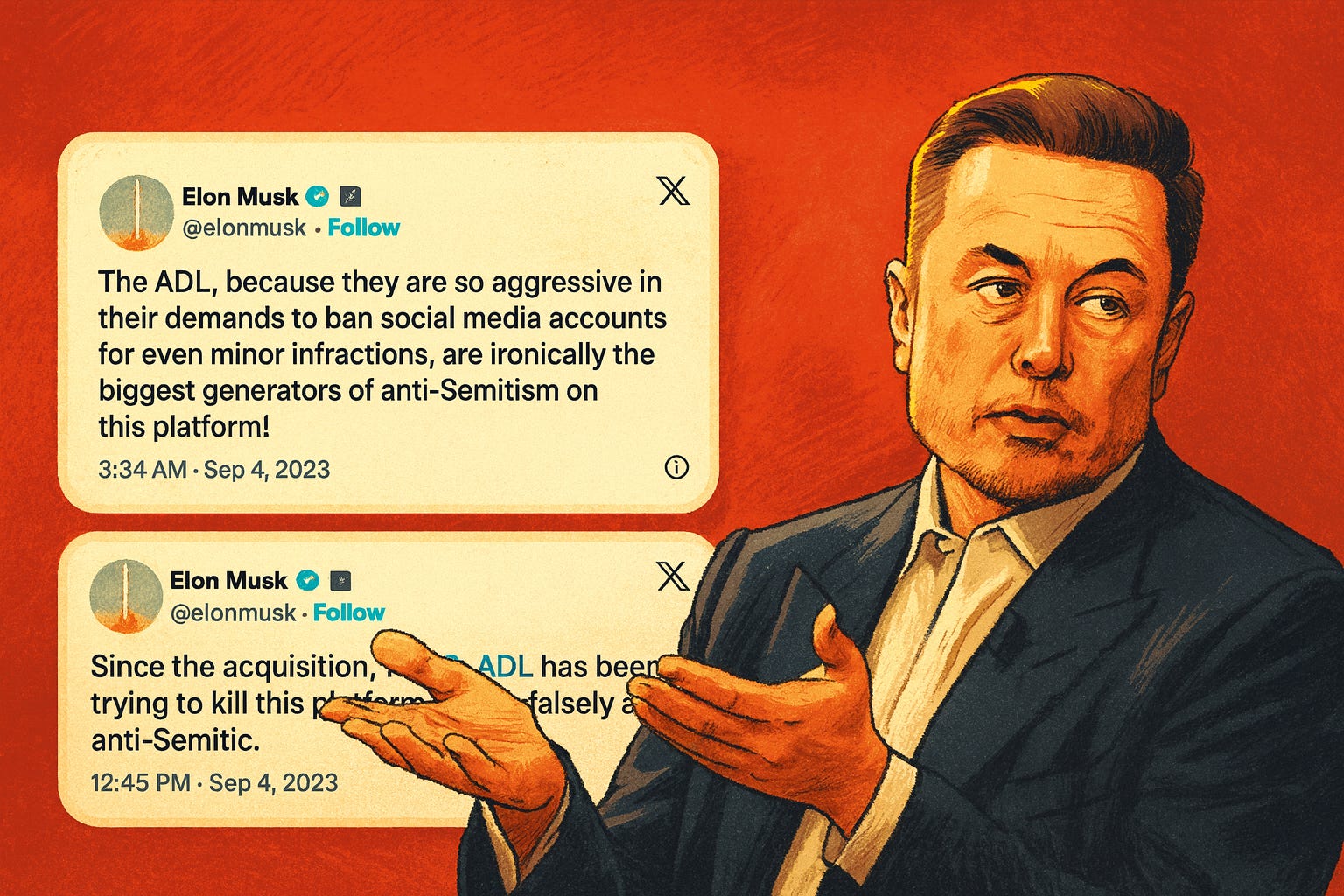

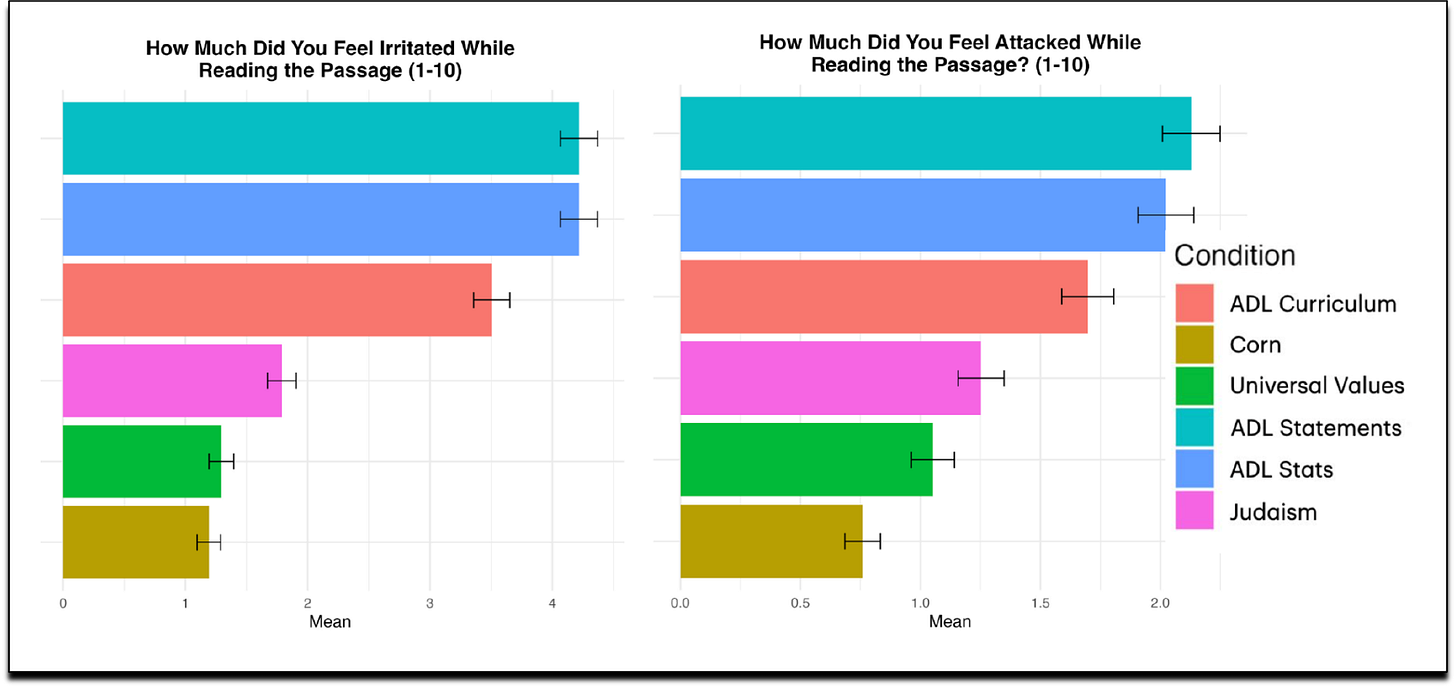
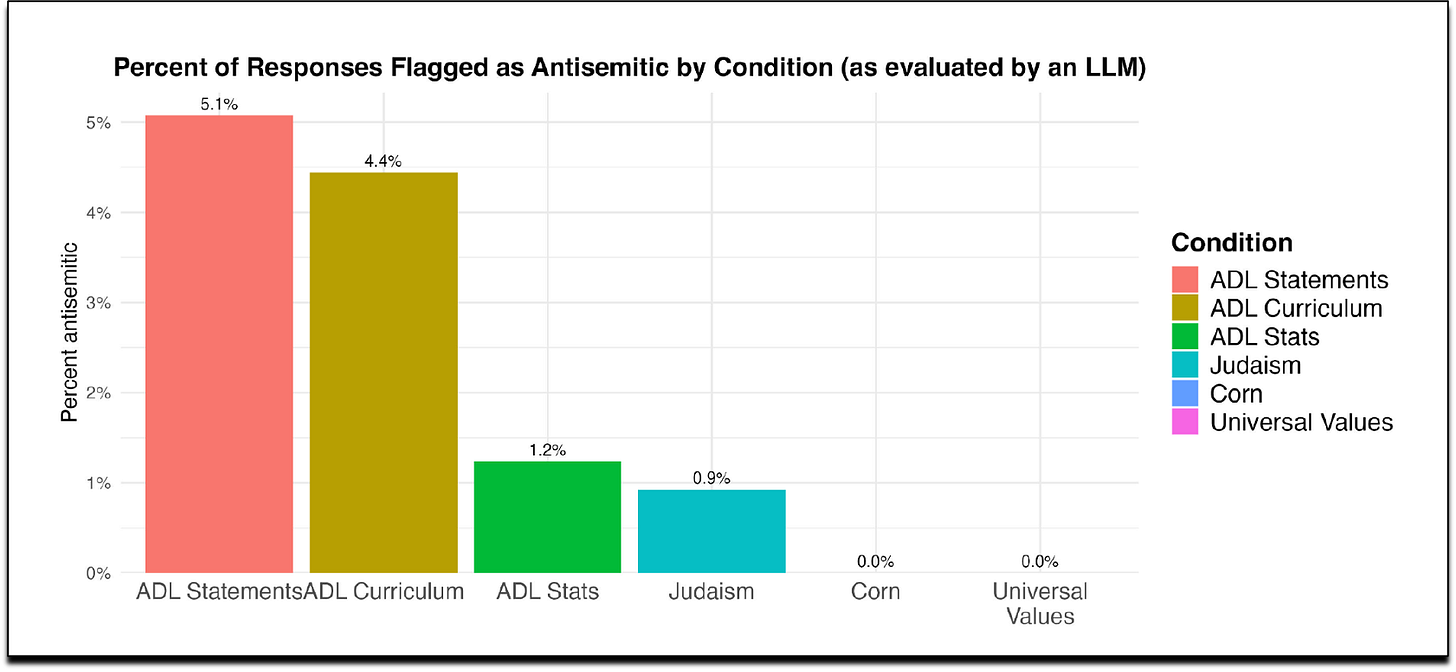
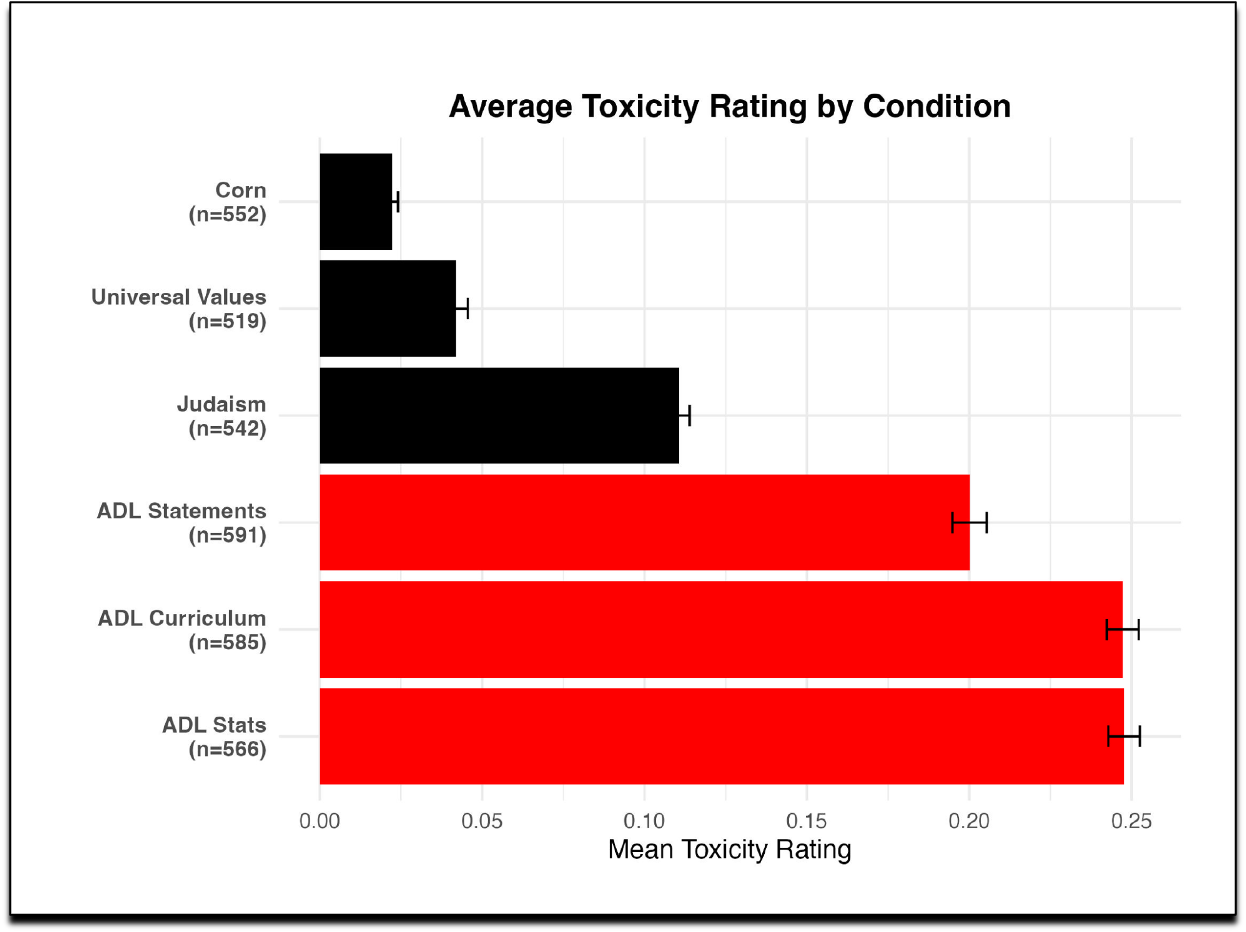
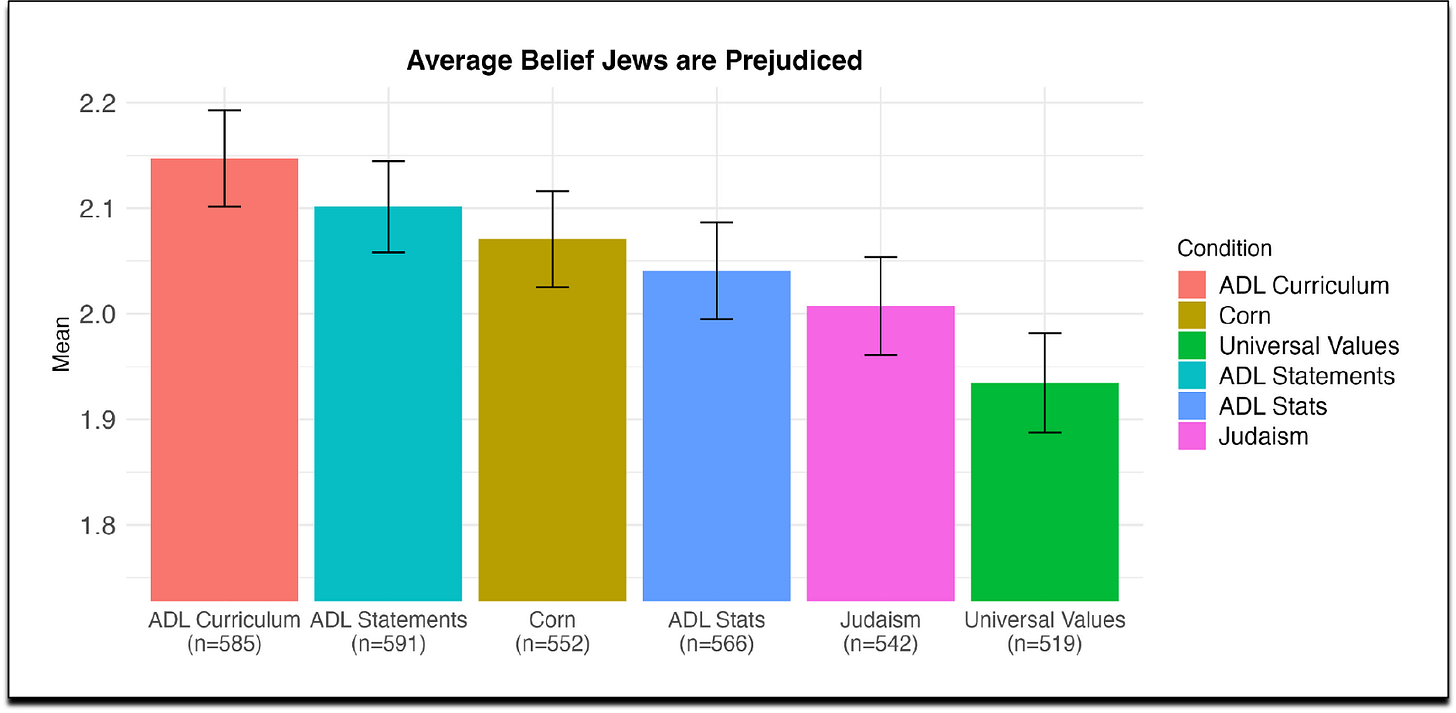
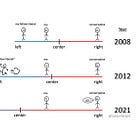



I think it’s important to specify whether these results came from the US/Western/WEIRD countries or worldwide. It’s true that Jewish advocacy groups like the ADL have played into Western DEI practices in a terribly counterproductive way. However, it’s always worth contextualizing that Judaism is a worldwide religion, and appealing to shared humanistic values will not work in all countries.
Or as Dr. Sowell put it, paraphrasing, when one has experienced decades of preferential treatment, equal treatment seems like oppression.